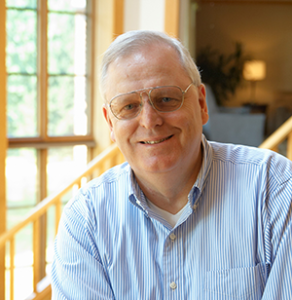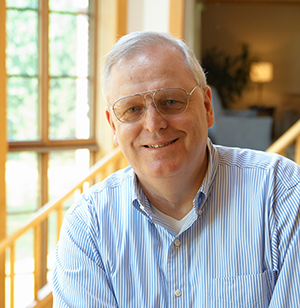Enhancing a company’s growth begins with its leaders.
At Quest Diagnostics, a Fortune 500 health care company that provides diagnostics testing and clinical laboratory services worldwide, CEO Steve Rusckowski recognized that their senior leaders needed to break out of their functional roles and broaden their understanding of the organization’s value chain.
Rusckowski, who joined the company in 2012, said he noticed Quest was not growing and “didn’t have the structure and culture to be successful.” He determined there was a need to provide enterprisewide leadership development to Quest’s 400-plus senior executive leaders that aligned with the company’s vision, goals and strategy.
At the end of 2014, Rusckowski initiated the call for the LeadingQuest Academy.
LQA’s Inception
Executive Director of Organizational Effectiveness Tovah Stroud and Jeff Shuman, former senior vice president and chief human resources officer, who is now retired, were tasked with developing LQA into a comprehensive, effective program. To help with the meta-design options for LQA’s development, Stroud brought in Pete Cuozzo, founder and president of Cuozzo Enterprises, a management consulting firm specializing in leadership development, individual and team coaching, and organization development.

An early consideration was how in-depth the program was going to be. “I presented Quest with four meta-design options on how they could realize their vision of LQA,” Cuozzo said. “Senior management decided to adopt the one-week in-residence option with 42 participants per session, along with an action learning component focused on strategic, enterprise-wide business opportunities.”
Additionally, based on conversations around experiential learning and the need to build financial acumen, Cuozzo turned to Tom Conine, professor of finance at Fairfield University in Connecticut and president of TRI Corp., which designs and delivers business simulations and executive development programs. Conine presented Quest with a business simulation and TRI-Leskin 360 assessment, developed by TRI and Barry Leskin of Talent Management Consulting, that would be the core of the five-day residential program. Those five days in residence would be the centerpiece of a larger 18-month program encompassing pre- and post-assessments and individual action-learning projects.
The first LQA program was scheduled to launch in April 2015 at an offsite conference center in New York.
Pre-Program Assessment
A month before participants arrived for the five-day residential LQA program, they took the TRI-Leskin 360 assessment.
In the case of Quest, there were 12 general manager-level competencies that cut across three domains of the LQA leadership model: strategy, people and results, according to Cuozzo. “It also provided two open-ended questions,” he said. “On average, participants received feedback from 18 to 25 raters including their managers, direct reports, peers, and both internal and external customers.”
Quest wanted a simple assessment that was not long, Stroud said. The TRI-Leskin 360 assessment took participants five to 10 minutes to complete and aligned with Quest’s leadership capabilities framework. “The qualitative write-in comments were the part augmented for Quest’s needs and the most valuable because people got feedback versus just getting quantitative ratings,” Stroud said.
A consolidated feedback report was generated based on the outcome, and a series of scores were provided to participants. The results of the assessment were strictly confidential; only the participant and Cuozzo received a copy. However, participants were encouraged to share a summary of their feedback with both their managers and their direct reports.
Ali Kiboro, vice president of finance-commercial, participated in LQA’s inaugural class. According to Kiboro, the feedback was “the most comprehensive I have received and from people who knew me very well.”
Other aspects of pre-work included participants completing a Quest Management System proficiency quiz (on statistical tools that would be applicable to the team projects), select tri-corp critical equations for business leaders on pricing, variance analysis and cash flow, and simulation readings.
“There is a competitive business simulation that is threaded throughout four of the five days in the program,” Conine said. “Participants are assigned to a team, and there is pre-work reading on their assignment to give them all the background information on the business conditions of the team they are joining.”
Sessions, Simulations and Growth Opportunities
The first day at LQA was spent in a series of sessions to prepare and introduce participants to the action learning projects. TRI’s competitive Leading the Business simulation then ran intermittently from day two to day five. “It is the capstone activity during the in-residence portion of the program,” Conine said. “It is designed with all objectives in mind and correlated to Quest’s five-point strategy.”
The simulation focused on a balance of hard and soft leadership skills, enhancing participants’ business acumen and financial knowledge. Role-play was an important part of the simulation, according to Conine. Participants were grouped into cross-functional teams of six or seven and tasked with transforming a failing health care business over six quarters.
“During the simulation, the teams can call from their breakout rooms to our control room, where we run the simulation from, and they can speak to characters played by myself and my team,” Conine said. “For example, they can call their customers to find out what’s relevant in terms of their priority of needs, they can call their suppliers and negotiate. It’s one of the ways that we differentiate our simulation. Through that role-play, you can glean competitive advantage, at least in the short term.”
According to Conine, the simulation helps participants learn to deal with time pressures, scarce resources, divergent opinions and — above all else — limited and uncertain information.
Twice during the simulation, the teams are asked to present where they are in the process. Quest executives serve on an operations review panel, representing the owners of the failing health care business. “During the first op review, teams make commitments and a budget for the next year that they have to deliver on in year two because they meet those same op reviewers again the second time,” Conine said.
“The participants tend to get a little nervous knowing that the real CFO of the company is going to be there to listen to their team present their results,” Cuozzo added. “It adds a flavor of pressure, in the good sense of the word. As much as this is a simulation, there are a lot of real-world elements.”
Throughout the program, Rusckowski and senior executives led various sessions targeting key workplace skills. There also was a highly interactive session where a real customer came in to talk about their experiences with Quest. Additionally, each LQA participant attended a one-on-one coaching session with Cuozzo that focused on the results of the TRI-Leskin 360 assessment and generated a customized 12-month development plan for the participant.
Cuozzo advised participants to discuss key feedback and insights with their managers within two weeks of the conclusion of the program and with their direct reports within four weeks. “That spacing enables the participant to gain perspective, provides an opportunity for them to digest the data and creates a forum to thank those who provided the feedback,” he said.
Kiboro found the coaching session extremely helpful. “The time spent with [Cuozzo] was invaluable in understanding what was good, what was an opportunity for improvement and what I was missing,” he said.
After 18 months the TRI-Leskin 360 assessment was re-administered to measure participants’ growth and adherence to their development plan. “We held a subsequent 30-minute coaching session during which we discussed progress against the participant’s original action plan, as well as next steps,” Cuozzo said.
“This is all part of our philosophy that leadership development is a process, not an event,” he added.
Since the initial LQA program, there have been nine additional cohorts. Cecilia McKenney, head of human resources at Quest, said each LQA cohort is sponsored by a Quest senior management team member who provides individual support throughout the in-residence program and post-program action learning projects. This allows participants to develop a more personal relationship with one of Quest’s most senior executives, which in turn allows those executives to have direct access to the company’s most promising potential leaders.
Benefits and Outcomes
Following the in-residence program, participants continue the action learning projects they initiated for six months. According to Stroud, Quest’s CEO and C-suite select the team-based action learning projects as strategic opportunities for the company — they are customized to a specific need of the organization. Following cohort No. 5 until today there is still a nomination process for the projects, but they are not as strategic anymore, according to Stroud. They focus on fixing real business challenges, opportunities for efficiency or effectiveness, she said.
According to TRI, since LQA’s inception, the team-based projects have generated tens of millions of dollars in present value for Quest. These projects have served as best practices and helped in several investment opportunities.
“The projects have proven immensely valuable in helping our leaders address everyday challenges,” Rusckowski said. The support of a wide range of Quest leaders is “ultimately driving toward the principle of ‘leaders teaching leaders.’ ”
Conine and Cuozzo emphasized the tremendous value of Quest’s C-suite involvement in the program. “The best is the total support and involvement from the senior-level management at Quest. They were actively involved in all aspects of the program,” Conine said. “In our decades of executive education with some of the leading companies in the world, we have never seen the same level of C-suite involvement, engagement and support.”
With the completion of its 10th program in the fall of 2018, all of Quest’s approximately 400 senior executive leaders have completed LQA.















